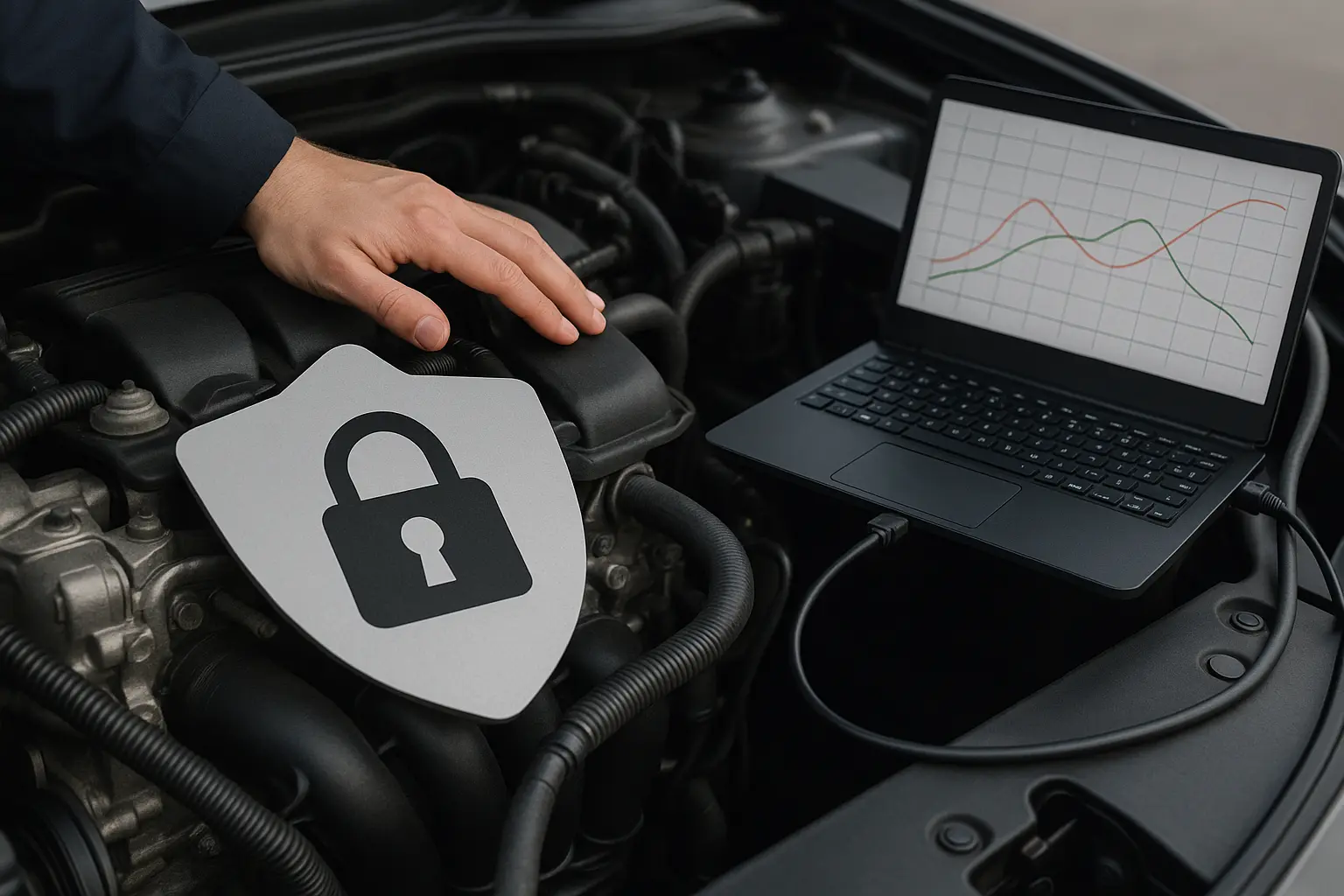ECU remapping, also known as engine tuning or chip tuning, is a popular method used to optimize a vehicle’s performance by modifying the Electronic Control Unit (ECU). By adjusting engine parameters such as fuel delivery, ignition timing, and turbocharger boost pressure, ECU remapping can unleash hidden power and torque. However, as with any engine modification, there are potential risks to engine reliability if not done responsibly. In this blog, we will delve into the importance of safeguarding engine reliability during ECU remapping, exploring the potential risks, essential considerations, and best practices to ensure a safe and reliable engine tuning experience.
1. Understanding ECU Remapping and its Impact
Before addressing engine reliability concerns, it’s crucial to understand how ECU remapping works and its impact on engine performance. The ECU is the central control unit responsible for managing various engine parameters to ensure optimal performance under different driving conditions. During remapping, the ECU’s software is modified or reprogrammed to optimize these parameters, leading to improved power output, torque, and fuel efficiency.
2. The Importance of Engine Reliability
Engine reliability is a critical factor for any vehicle owner. A reliable engine not only ensures safe and trouble-free driving but also protects the vehicle from costly repairs and breakdowns. When considering ECU remapping, it’s essential to prioritize engine reliability to maintain the vehicle’s longevity and performance over time.
3. Risks to Engine Reliability During ECU Remapping
While ECU remapping offers performance benefits, several risks can compromise engine reliability if not adequately addressed:
a. Over-Boosting: Incorrectly adjusted turbocharger boost pressure can lead to over-boosting, causing excessive stress on the engine and potentially leading to engine damage.
b. Lean or Rich Conditions: Incorrect fuel delivery settings can result in lean (insufficient fuel) or rich (excessive fuel) conditions, impacting engine performance and potentially causing damage.
c. Ignition Timing: Improperly adjusted ignition timing can lead to knocking and engine damage due to premature combustion.
d. Heat Buildup: Increased power output during remapping can result in higher heat generation, potentially leading to overheating and engine damage if not managed effectively.
e. Mechanical Stress: Higher power output from remapping can subject engine components to increased mechanical stress, potentially leading to premature wear or failure.
4. The Role of Professional Tuning
To safeguard engine reliability during ECU remapping, it is essential to seek the services of a reputable and experienced professional tuner. Professional tuners possess the technical expertise and specialized tools to calibrate the engine map accurately, ensuring optimal performance without compromising engine reliability.
5. Selecting a Reputable Tuning Service
When choosing a tuning service, consider the following factors to safeguard engine reliability:
a. Reputation and Reviews: Look for tuners with a strong reputation and positive reviews from satisfied customers.
b. Experience: Seek tuners with extensive experience in ECU remapping, especially for your vehicle make and model.
c. Certification: Check if the tuner is certified by recognized tuning organizations or associations.
d. Data Logging and Dyno Testing: Professional tuners often use data logging and dyno testing to fine-tune the engine map and ensure safe and reliable performance.
e. Revertibility: Inquire about the tuner’s ability to create a backup of the original ECU software, allowing the vehicle to be restored to its factory settings if needed.
6. Customization for Engine Reliability
A reputable tuner will prioritize engine reliability during the remapping process. Customization is essential to ensure that the engine map is tailored to the specific vehicle setup, modifications, and driving preferences. Tuners must consider factors such as driving style, intended use of the vehicle, and existing engine components to optimize performance while safeguarding engine reliability.
7. Real-time Data Logging and Fine-tuning
Real-time data logging and fine-tuning are integral to safeguarding engine reliability. During dyno testing or on-road driving, tuners can collect valuable data on engine performance, exhaust gas temperatures, and other critical parameters. This data helps in making precise adjustments to the engine map, preventing issues such as over-boosting or excessively lean air-fuel ratios.
8. Managing Heat Buildup
Higher power output from ECU remapping can result in increased heat buildup in the engine. Tuners should pay special attention to cooling system performance and monitor engine temperatures during remapping. Ensuring that the cooling system can handle the additional heat is vital for engine reliability.
9. Ensuring Proper Fueling and Ignition Timing
Fuel delivery and ignition timing adjustments are crucial for engine reliability during remapping. Tuners must carefully calibrate these parameters to provide the correct amount of fuel and ensure timely spark ignition. Proper fueling and ignition timing prevent knocking and other detrimental conditions that can lead to engine damage.
10. Regular Maintenance and Monitoring
After ECU remapping, regular engine maintenance and monitoring become even more critical to safeguard engine reliability. Oil changes, spark plug inspections, and other scheduled maintenance tasks are essential to keep the engine running smoothly and identify any potential issues early on.
11. Reverting to Stock ECU Map
While ECU remapping offers significant performance gains, there may be situations where reverting to the stock ECU map becomes necessary. If the vehicle experiences any issues or if engine reliability becomes a concern, having the ability to return to the original ECU map can be beneficial. It allows for a safe fallback option if needed.
12. Considering Aftermarket Components
When planning ECU remapping, consider the use of aftermarket components that can handle the increased performance demands. Upgrading engine components such as intercoolers, exhaust systems, and intake systems can further enhance engine reliability and performance.
Conclusion
ECU remapping can provide impressive performance gains, but it must be done responsibly to safeguard engine reliability. Risks such as over-boosting, improper fuel delivery, and excessive heat buildup must be carefully managed through proper customization, professional tuning, and regular maintenance. By prioritizing engine reliability during ECU remapping, vehicle owners can enjoy the benefits of enhanced performance while maintaining the longevity and dependability of their engines for years to come. Partnering with a reputable and experienced tuner and understanding the implications of engine modifications are essential steps to ensure a safe and reliable tuning experience.



